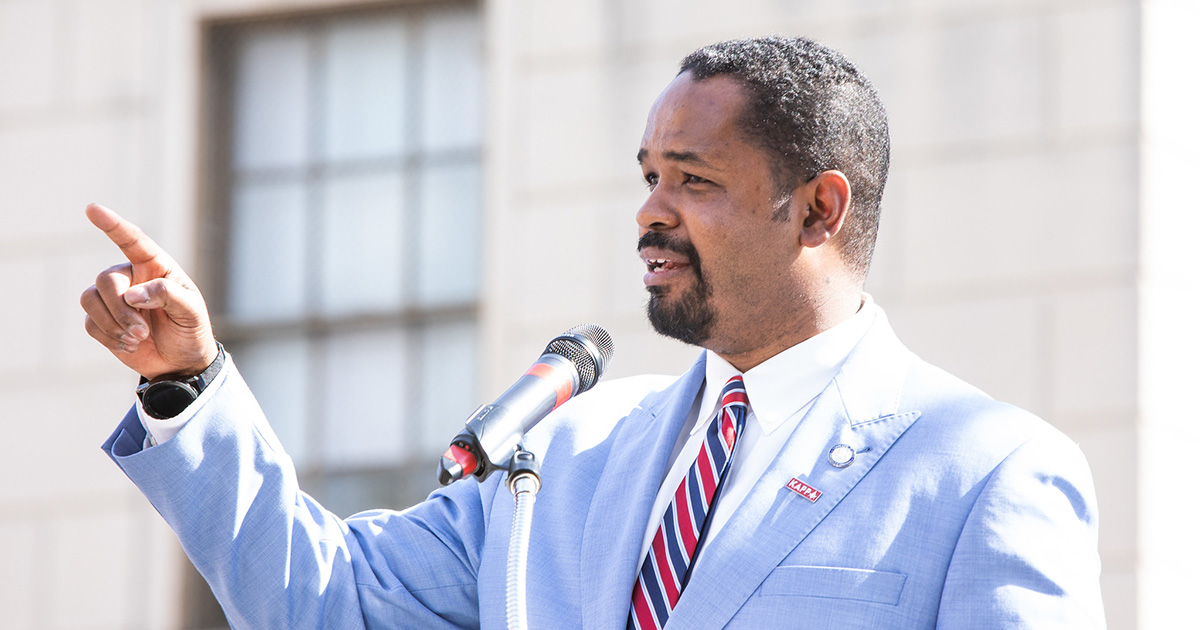
Op-ed By Senator Sharif Street
Political tribalism is tearing at America’s seams. The fabric binding our increasingly blue cities and suburbs with our increasingly red rural communities frays more with each passing news cycle, spurred on by political media pundits and social media platforms that reap huge profits from conflict and division.
There are ways to build consensus without sacrificing our core principles like ceding back progress on voting rights, civil rights, and economic opportunity gained through decades of struggle and sacrifice.
Finding issues that bind together the real-world, kitchen-table interests of working class urban and rural Pennsylvanians is a good place to start. Broadband is an essential need for all communities, evidenced by millions of Pennsylvanians who worked, went to school, utilized telemedicine, and connected with family during the pandemic. But millions more were left behind for lack of home internet service.
These connectivity gaps are particularly pronounced in rural areas and low-income urban communities – opposite poles of our political spectrum. That makes them fertile ground for the kind of blue-red coalition that is increasingly needed in today’s politics.
But the digital divide really has different root causes in these areas. If we want to solve the problem, we first need to understand it.
In rural Pennsylvania, broadband gaps are primarily an infrastructure problem. At least five percent of rural Pennsylvanians – by other estimates, many more – still have no broadband options available. It costs a lot more to build a network reaching each home where populations are less dense, and in some areas there’s just not enough potential customers to make the economics work.
That’s why public dollars – such as the $42 billion committed in President Biden’s bipartisan recently-passed infrastructure bill – are urgently needed to help finish buildouts to these high-cost areas.
In urban areas, the problem isn’t infrastructure, it’s adoption. In Philadelphia, just about every home has an ultra-fast broadband network available at their front door; 95% have two or more choices, even at fast 100 Mbps speeds. But only 70% were actually subscribed and connected at the start of the pandemic. And even after an all-out blitz over the past 18 months from broadband providers, local leaders, and the federal government, 16% of residents still remain disconnected.
As a state senator who represents some of the most vulnerable communities in Philadelphia, I see firsthand how this adoption gap holds back my community. As a member of the Senate Agriculture Committee, I talk constantly with farmers and rural development leaders who voice similar frustrations about deployment gaps.
We’re in this together, and the sooner we focus our efforts on finding common ground the better it will be for communities who voted for a bipartisan government and still expect us to get things done.
President Biden’s bipartisan infrastructure bill offers a good start. With $42 billion to wire rural America, plus $14 billion to fund a monthly broadband stipend for struggling low-income families, the bill recognizes both faces of the digital divide and offers solutions for both. That’s a big reason why 19 Republican senators crossed over and joined all 50 Democrats in the Senate in supporting the bill, and why the House recently followed suit.
We’re in this together, and the sooner we focus our efforts on finding common ground the better it will be for communities who voted for a bipartisan government and still expect us to get things done.
President Biden’s bipartisan infrastructure bill offers a good start. With $42 billion to wire rural America, plus $14 billion to fund a monthly broadband stipend for struggling low-income families, the bill recognizes both faces of the digital divide and offers solutions for both. That’s a big reason why 19 Republican senators crossed over and joined all 50 Democrats in the Senate in supporting the bill, and why the House recently followed suit.
If we get this right, we can change Pennsylvania’s future. Farmers will gain access to precision technologies promising increase yields and income. Students won’t have to huddle in a library parking lot to find a Wi-Fi signal for finishing homework. Patients will be able to connect with their doctors virtually, saving time and money and even lives.
We must be purposeful with our collective power. While there is no single solution for solving the problems of partisanship the Chinese proverb reminds us that a journey of a thousand miles begins with a single step. Building consensus to move our communities forward is an important step toward solving the problems we were elected to solve. The American people deserve no less.
